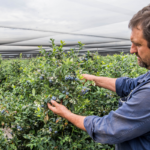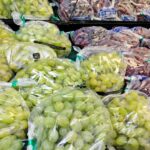Australia introduces Agriculture visa

The Australian Government has introduced an Agriculture visa, amid severe workforce shortages in the sector and other primary industries.
Regulations to enable the creation of the Australian Agriculture visa will be in place by the end of September 2021. Operation of the visa will depend on negotiations with partner countries.
The government said the visa would build on "the highly successful existing Pacific schemes", and will be available to workers across the agriculture (including meat processing), fisheries and forestry sectors.
It is expected to provide a basis for the ongoing growth of Australia’s primary industries as they strive to reach $100 billion in value by 2030.
The program will be operated by the Department of Foreign Affairs and Trade, building on the strong outcomes from Pacific labour mobility programs.
The government said it would immediately commence industry consultations to understand needs across the agricultural sector.
"The departments of Foreign Affairs and Trade, Home Affairs and Agriculture, Water and the Environment will design the visa to ensure a high degree of integrity and safeguards for workers," it said.
The Australian Agriculture visa will be open to applicants from a range of countries negotiated through bilateral agreements. Full conditions will be developed and
implemented over the next three years as the visa is operationalized.
"During this implementation period we will work to achieve a demand-driven approach and consider permanent residency pathways and regional settlement.
Quarantine places remain the biggest constraint to bringing in overseas workers where there are no Australians to fill workforce shortages," it said.
Citrus sector welcomes new visa
Citrus Australia CEO Nathan Hancock welcomed the move, saying: “We recognize that [Agriculture] Minister Littleproud has seized on the opportunity for industry and appreciate the Federal Government has now backed its implementation."
He said that in doing so the government has recognized the contribution of the agriculture sector to the national economy and the importance of supporting the thousands of farmers across Australia struggling to manage the impacts of the pandemic.
“Growers across all sectors this year, who contribute billions of dollars to the national economy and rural and regional Australia, have suffered significant financial losses, and great mental stress, due to the severe labor shortage,” Hancock said.
“On behalf of them, we thank the government for committing all government departments to work together on delivering the agriculture visa.”
The visa will be open to applicants from a range of countries and will be available to skilled, semi-skilled and unskilled workers. The government will begin industry consultations to understand needs across the agriculture sector, with all citrus growers to be represented by Citrus Australia.
“Citrus Australia sees the agriculture visa as an important component of a reformed and sustainable agricultural workforce,” Hancock said. “Structural change to the horticulture workforce is imperative to the future growth of this burgeoning industry.
“The agriculture visa not only provides confidence to our citrus growers to continue to invest in their export programs, but enables them to focus on attracting returning workers to their farms and pack sheds, leading to increased efficiencies in their business."
He added that Citrus Australia is confident that the proposed visa will complement the Seasonal Worker Programme and Pacific Labour Scheme, which remain "vitally important to the citrus industry".
“The ag visa provides another avenue, particularly to smaller citrus businesses, to recruit skilled, semi-skilled and unskilled workers, and provides incentive to invest in them," he said.
“We look forward to seeing the detail of the scope the ag visa will deliver. We look forward to contributing to the visa framework to ensure it benefits both growers and ASEAN workers who want to build a career in the agriculture industry.”












































